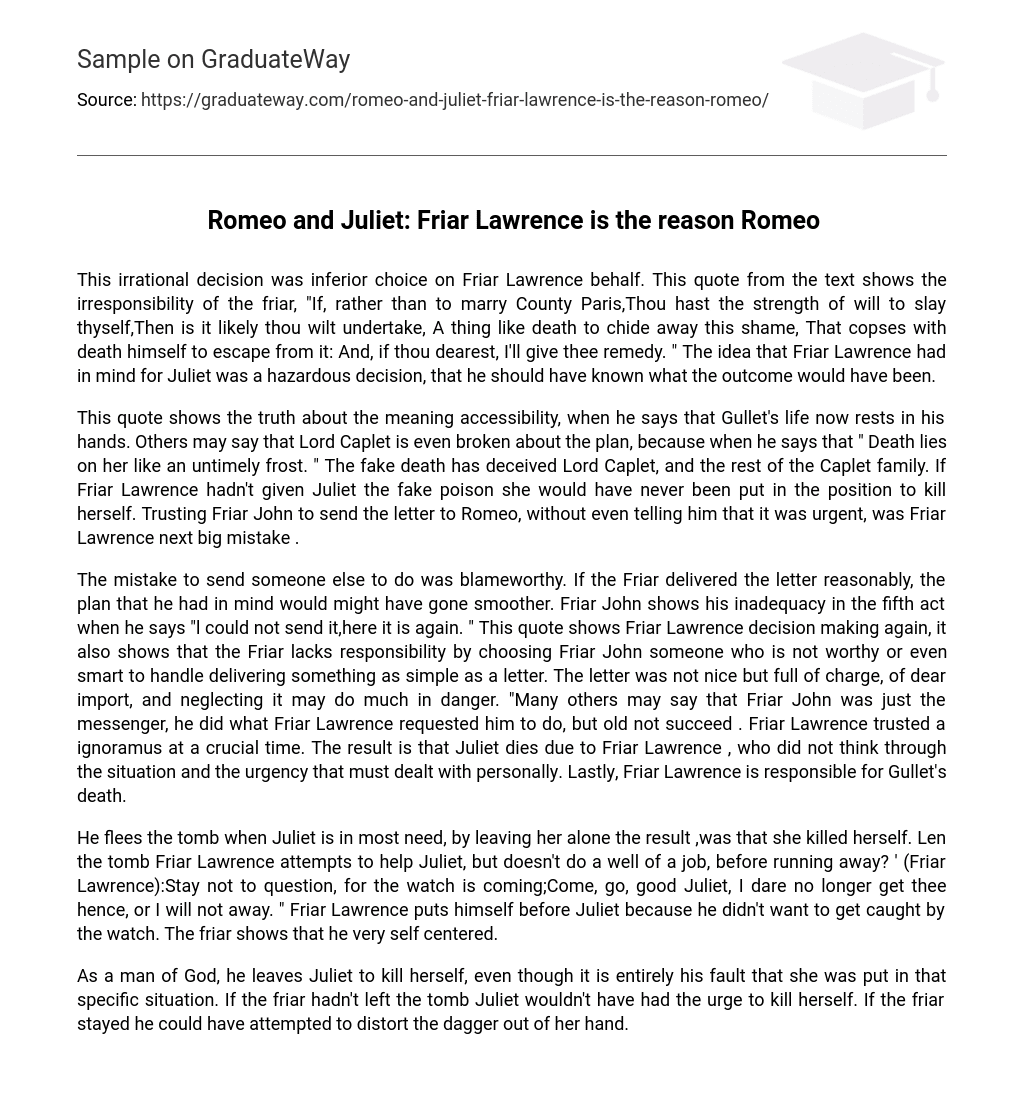The decision made by Friar Lawrence was irrational and inferior. The quote from the text portrays the friar’s irresponsibility: “If, instead of marrying County Paris, you have the willpower to kill yourself, then it is likely you would undertake an act like death to rid yourself of this shame, even if it means facing death itself to escape from it. And if you dare, I will give you a solution.” The idea that Friar Lawrence had for Juliet was hazardous, and he should have been aware of the likely consequences.
This passage illustrates the significance of accessibility by showing that Gullet’s life now depends on someone else. Lord Caplet appears to be deeply affected by the plan as well, indicated by his statement that “Death lies on her like an untimely frost.” The false death has successfully deceived Lord Caplet and the rest of the Caplet family. Juliet would never have found herself in a situation where she had to take her own life if Friar Lawrence hadn’t provided her with the fake poison. Another mistake made by Friar Lawrence was trusting Friar John to deliver the letter to Romeo without emphasizing its urgency.
The mistake of sending someone else to do the task was blameworthy. If the Friar had delivered the letter reasonably, his plan would have gone smoother. The fifth act highlights Friar John’s inadequacy when he says, “I could not send it, here it is again.” This quote demonstrates Friar Lawrence’s decision-making and the Friar’s lack of responsibility in choosing an unworthy and unintelligent messenger like Friar John to deliver a simple letter. The letter was crucial and neglecting it posed great danger. While some may argue that Friar John was just following Friar Lawrence’s orders but failed, it still shows that Friar Lawrence trusted an ignorant person in a critical moment. Consequently, Juliet’s death can be attributed to Friar Lawrence’s failure to properly consider the situation and the urgency that required personal attention. Ultimately, Friar Lawrence bears responsibility for Gullet’s death.
He leaves the tomb when Juliet needs him the most, causing her to take her own life. Inside the tomb, Friar Lawrence tries to assist Juliet but fails in his attempt before fleeing. The friar says, “Stay not to question, for the watch is coming; Come, go, good Juliet, I dare no longer stay here, or else I will not be able to leave.” Friar Lawrence prioritizes his own safety over Juliet’s by avoiding detection from the watch. This demonstrates the friar’s selfishness.
As a man of God, Friar Lawrence is responsible for leaving Juliet to kill herself, despite the fact that he caused her to be in that situation. If the friar had stayed at the tomb, Juliet would not have felt the need to take her own life. By remaining, he could have tried to take the dagger from her hand. Some may argue that it is Juliet’s own fault for her death because she ultimately killed herself. However, if Friar Lawrence had not put her in that situation, she might have had a chance to live. Instead of staying to assist, he chose to flee from the authorities for his own safety. As a result of this poor decision, Juliet ends up dead.





